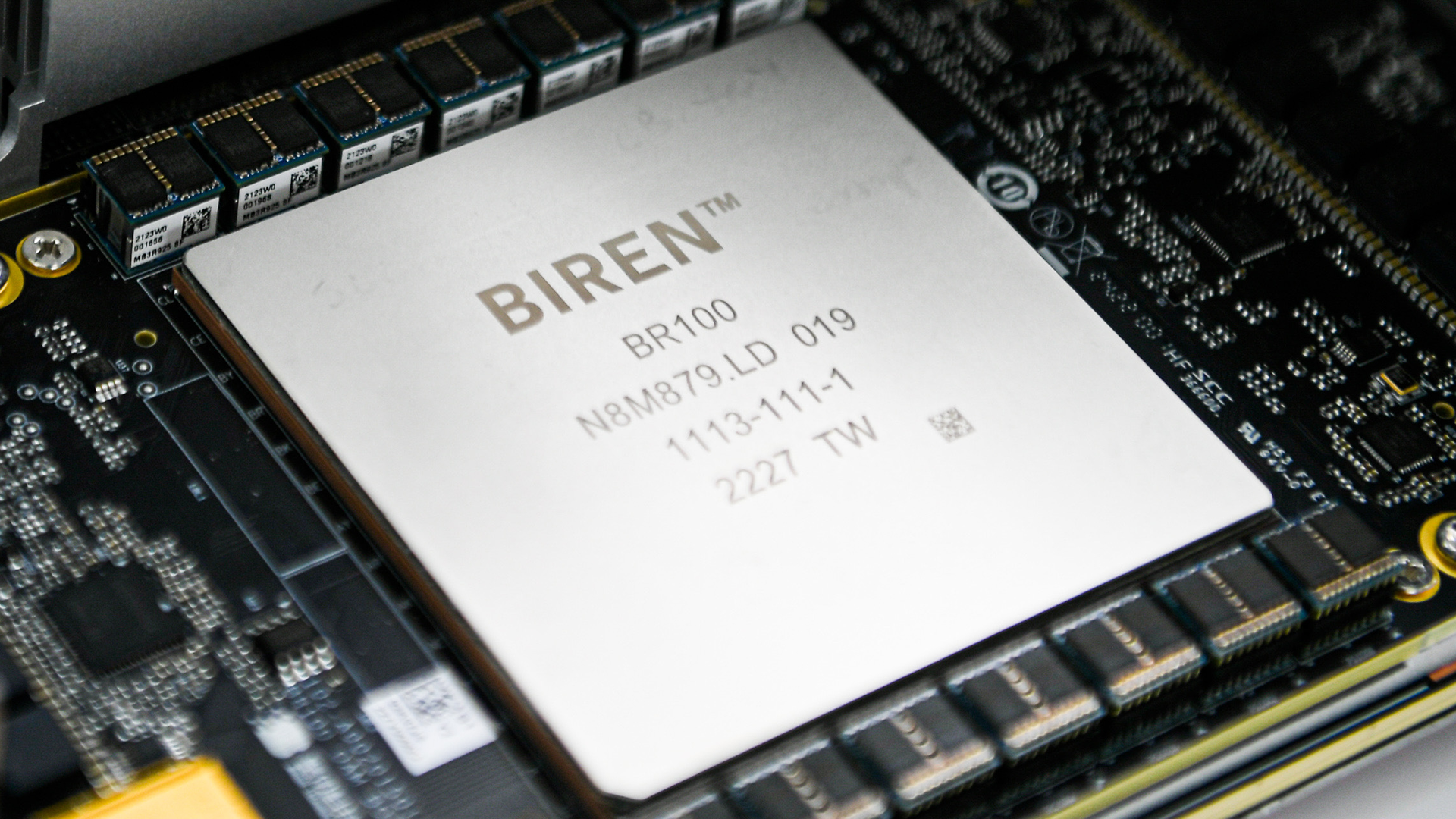Blacklisted Chinese AI GPU champ Biren preps for IPO at $2.19B valuation
Again?

Biren Technology, a Chinese AI GPU developer that rivals Nvidia, has hired an investment bank to prepare itself for an initial public offering (IPO), reports South China Morning Post. Biren, valued at $2.19 billion last November, has been looking forward to an IPO for over a year and appears to be nearing this milestone.
The fabless semiconductor designer has taken the first step toward an IPO by hiring Guotai Junan Securities for guidance through the necessary IPO preparation stage, which is required for all firms in China before listing. This 'tutoring' process typically takes from three to twelve months. Neither Biren nor the China Securities Regulatory Commission (CSRC) has shared details on where the IPO will occur or the expected fundraising target.
This IPO move follows a similar step by Biren's competitor, the Tencent-backed startup Enflame. Both companies work to secure capital from public markets while attempting to cash in on the growing interest in homegrown technology in China. Specifically, Biren seeks to fill the void left by Nvidia and AMD, whose most advanced chips are blocked from being sold to Chinese entities due to U.S. export restrictions.
Meanwhile, Biren is blacklisted by the U.S. Commerce Department, which made it impossible for the company to produce its BR100/BR200 GPUs (i.e., these GPUs for AI cannot be made by TSMC unless the U.S. government grants the foundry an export license) and develop new products (unless the U.S. gov't grants another export license to companies that produce electronic design automation tools). As a result, the company had to develop simplified BR106, BR106C (cards), and BR106M (module) products that are allegedly not made by TSMC (i.e., most likely produced by SMIC). Interestingly, Biren no longer shares performance numbers for these parts.
According to Pitchbook, Biren Technology was valued at $2.19 billion in November 2023. Over its development, the start-up has raised over $780 million across eight funding rounds. One of its key investors is the venture capital firm HongShan, formerly known as Sequoia China.
The growth of China's semiconductor industry has produced numerous unicorns in recent years, although concerns have been raised about the tech sector's reliance on state-backed investments.
Get Tom's Hardware's best news and in-depth reviews, straight to your inbox.

Anton Shilov is a contributing writer at Tom’s Hardware. Over the past couple of decades, he has covered everything from CPUs and GPUs to supercomputers and from modern process technologies and latest fab tools to high-tech industry trends.
-
MacZ24 ReplyThe growth of China's semiconductor industry has produced numerous unicorns in recent years, although concerns have been raised about the tech sector's reliance on state-backed investments
Of course, nothing to do with the CHIPS Act : when we do it, it's perfectly OK.
Like propaganda and censorship moderation : just put some lipstick on that pig and it becomes quite ok. -
Pierce2623 Reply
You act like the CHIPS act started it all when realistically the CHIPS act was about just keeping up. It happened because companies are no longer willing to build fabs without government assistance when they know they only have to knock on 3-4 doors to get the money. It has very little to do with the situation in China where companies often exist on 70%-90% government funding, though.MacZ24 said:Of course, nothing to do with the CHIPS Act : when we do it, it's perfectly OK.
Like propaganda and censorship moderation : just put some lipstick on that pig and it becomes quite ok. -
MacZ24 Reply
The US and China are subsidising industries for strategical purposes : it is exactly the same thing.Pierce2623 said:You act like the CHIPS act started it all when realistically the CHIPS act was about just keeping up. It happened because companies are no longer willing to build fabs without government assistance when they know they only have to knock on 3-4 doors to get the money. It has very little to do with the situation in China where companies often exist on 70%-90% government funding, though.
And since the US is blocking the WTO for some time now, it has no one to complain to.